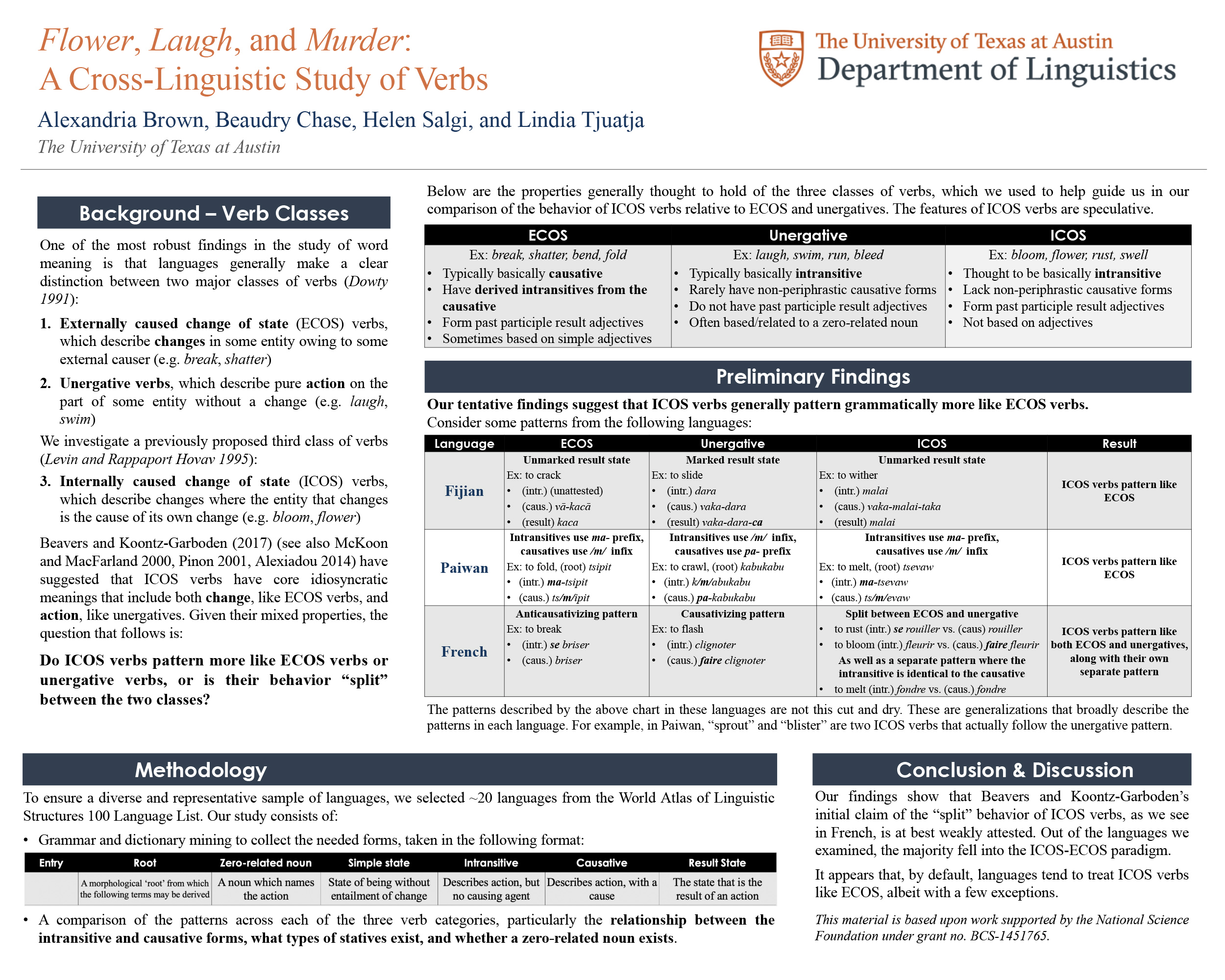Alexandria Brown, Beaudry Chase, Helen Salgi, and Lindia Tjuatja
One of the most robust findings in the study of word meaning is that languages generally make a distinction between two major classes of verbs: verbs that describe changes induced by some external causer (e.g. break, shatter) and those that describe pure action without a change (e.g. laugh, swim). Extensive prior research suggests that each class has a variety of unique grammatical properties that make it distinct from the other in terms of their morphological forms, a fact often attributed to activities and changes being wholly distinct semantic concepts.
We investigate a proposed third class of verbs. Recent work has claimed that this class of verbs describes changes where the entity that changes is the cause of its own change, and thus are “internally caused change of state” (ICOS) verbs. Since the internal cause may involve action-like properties these verbs are expected to show mixed patterns that have similarities with both activity and externally caused change of state verbs.
To test this hypothesis, we conducted a study comparing the morphological properties of such verbs in comparison to activity and externally caused change of state verbs across ~20 languages from around the world through dictionary and grammar mining. Our tentative findings show that ICOS verbs generally pattern more like externally caused change of state verbs rather than consistently showing properties of both action and caused change verb patterns. However, in most languages at least some language-specific subset of ICOS verbs pattern partly like activity verbs. This suggests that while change and activity may be robust and typically distinct basic categories for verb meanings, they are not always mutually exclusive, potentially giving rise to a more nuanced view of what a verb’s meaning can be and how it is related to its grammatical properties.

Comments
Very interesting to read and educational. The research taught me a little about the differentiation of types of verbs. Great job! – Terrian Spurs
Thank you! We’re glad you appreciate our work. – Helen Salgi
Interesting project, and great title! Thank you for sharing your work. – Jeanette Herman
Thank you! – Helen Salgi
I really liked your methodology for this research study. I am curious to know if it is possible that in languages like French that ICOS verbs form their own pattern instead of following the pattern of ECOS and Unergative verbs? – Ethan Roy
That could be a possibility. For French they patterned so similarly that it does not seem like the case, however it would be interesting to see if it is in other languages. – Helen Salgi
The three example languages you discuss give a good illustration of some of the different patterns. How many of the other ~17 languages exhibited the ICOS-ECOS pattern? Were there other languages that behaved like French? – Rob Reichle
Hello! Roughly three-fourths of the languages exhibit the ICOS-ECOS pattern. A couple of specific examples of languages that exhibit the ICOS-ECOS pattern are Egyptian Arabic and Persian. Another language that exhibited a split like French is Basque. – Helen Salgi

